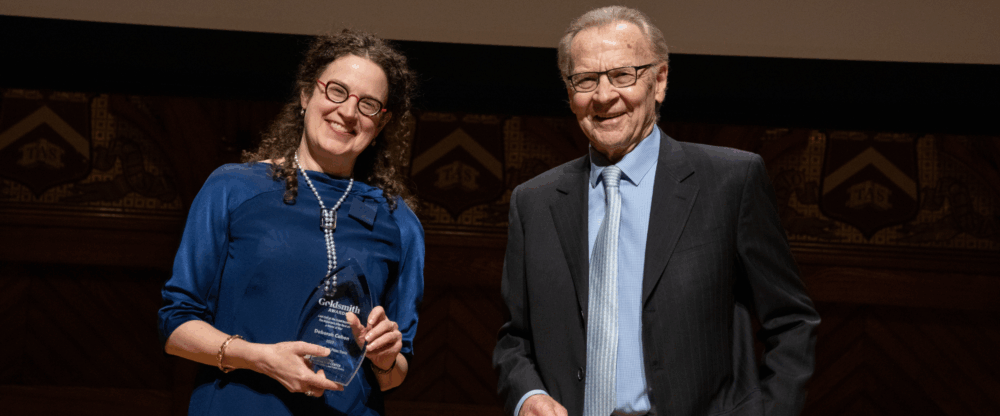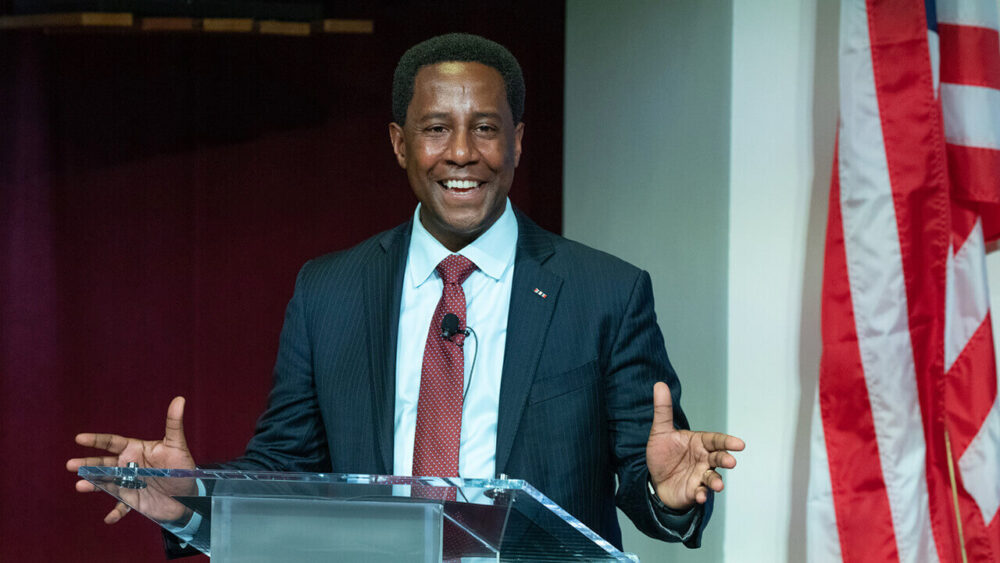
Nominations open for the 2026 Goldsmith Awards
Newsletter
Our weekly roundup of news found at the intersection of media, politics, policy and technology, from the Shorenstein Center and from around the web.
Journalist’s Resource has collected and analyzed research on some of this week’s pressing policy areas:
Listening Deeply. Last week, Shorenstein Center Director Nicco Mele moderated a panel hosted by the Knight Foundation and Civic Hall. How can journalists do a better job of reporting the whole picture? What roles do data, storytelling and geography have in reporting? How can media organizations listen beyond the echo chamber? Amalie Nash of USA Today, Nate Silver of FiveThirtyEight, and Sally Buzbee of The Associated Press discuss.
What happens to Donald Trump’s Twitter account now that he’s president? Nicco Mele, Shorenstein Center director, says to expect Trump to use Twitter “in the same way he did during the campaign,” as a primary vehicle of communication with the public—instead of traditional interviews and press conferences.
A Look Back At Other Marches In History, And What They Accomplished. Leah Wright Rigueur, Assistant Professor of Public Policy, discusses the significance of the Women’s March and how it compares to other marches in history.
Why I Joined the Women’s March on Washington. HKS student Brynna Quillin reports on her experience at the Women’s March.
Trump’s bogus border wall. Juliette Kayyem, Belfer Lecturer in International Security, writes that Trump’s promise to build a wall on the Mexican border will face serious geographical and political barriers.
Trump to environment: This is war. Derrick Z. Jackson, fall 2016 fellow, argues that Trump’s pledge to “refocus” the mission of the Environmental Protection Agency and his Cabinet nominees “take us back to a flat earth.”
Election Experts Dismiss Trump’s Repeated Claims Of Illegal Voting. Pippa Norris, Paul F. McGuire Lecturer in Comparative Politics, says that Trump’s claims of voter fraud are unfounded, and if millions of votes were cast illegally, “many states would have found that out and would have revealed it, as would the press.”
Send the interns. Jay Rosen, spring 1994 fellow, advises news outlets to put their “most junior people in the White House briefing room,” since “the real story is elsewhere, and most likely hidden.”
USDS = taxpayer value, former White House deputy CTO says. Nick Sinai, Adjunct Lecturer in Public Policy, weighs in on the future of the U.S. Digital Service under Trump’s administration.
Meeting President Obama: A Farewell to Representation. HKS student Elorm Avakame reflects upon Obama’s presidency and legacy.
Sign up to receive Media and Politics Must Reads in your inbox each week. Also connect with us on Twitter and Facebook for more updates.


Center News

Center News